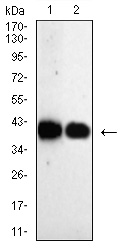
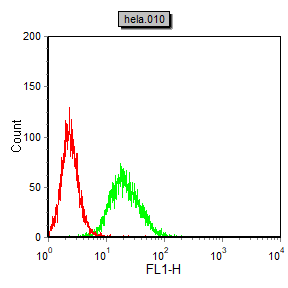
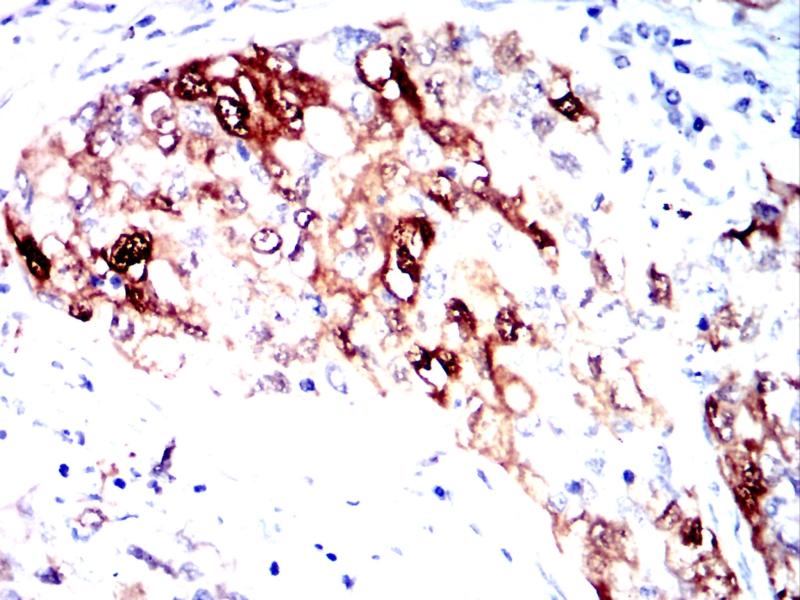
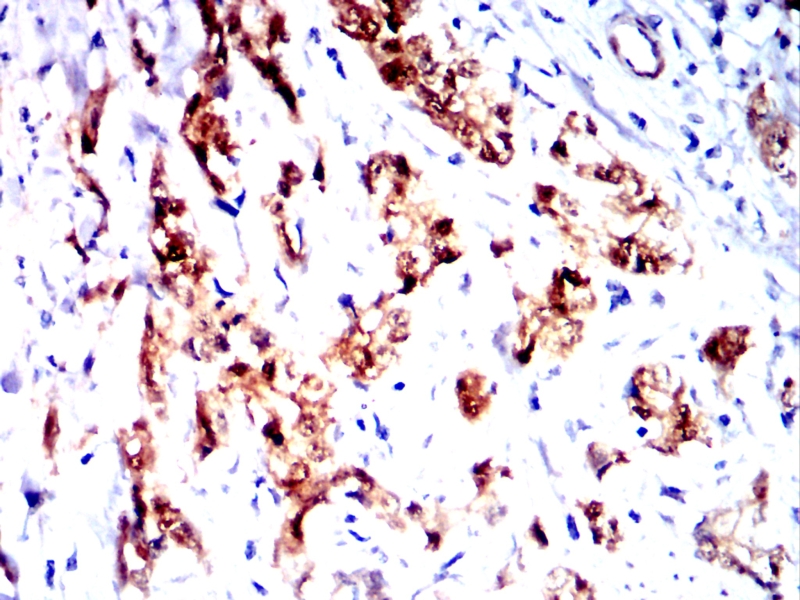
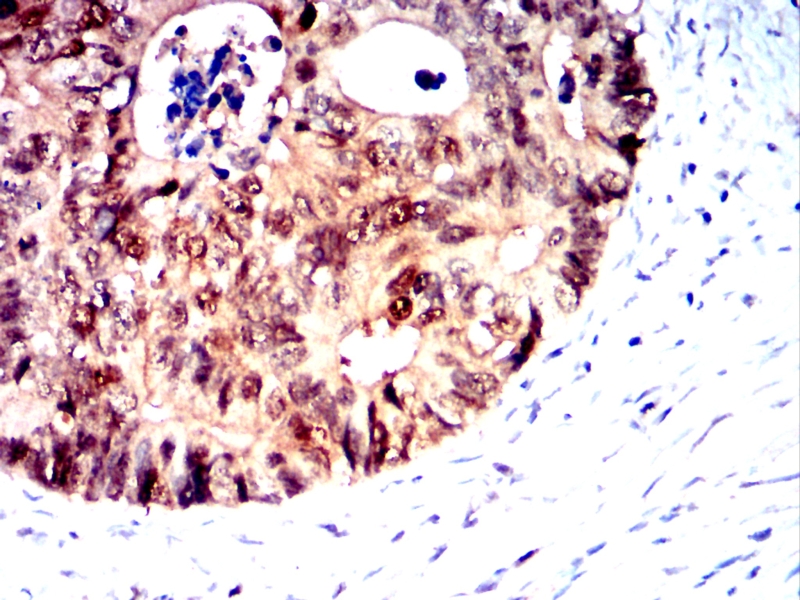
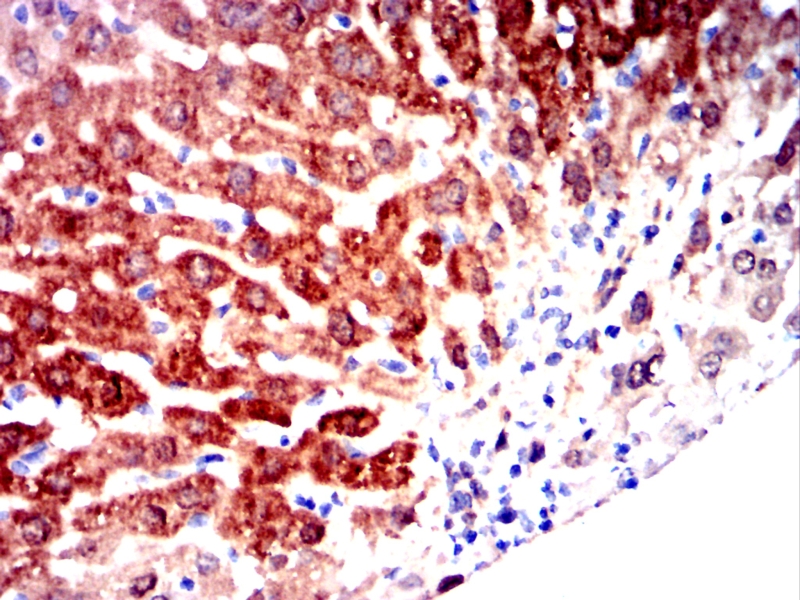
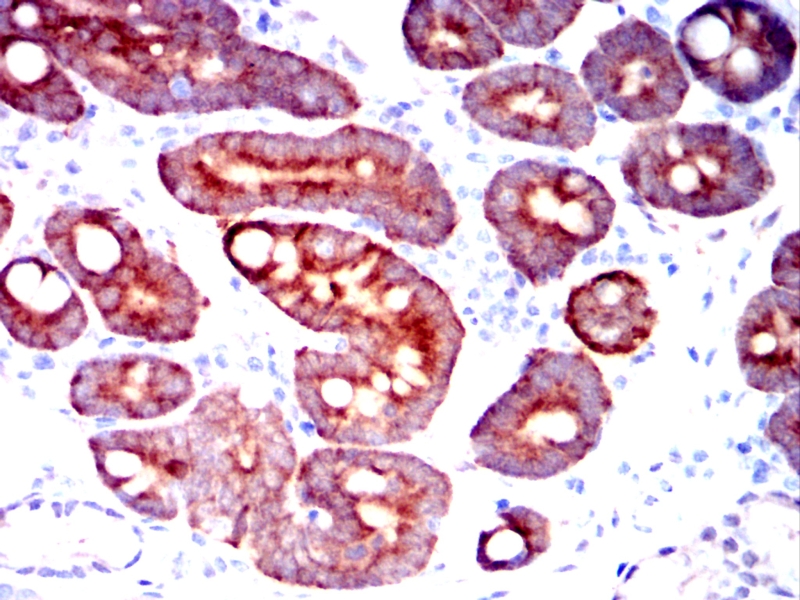
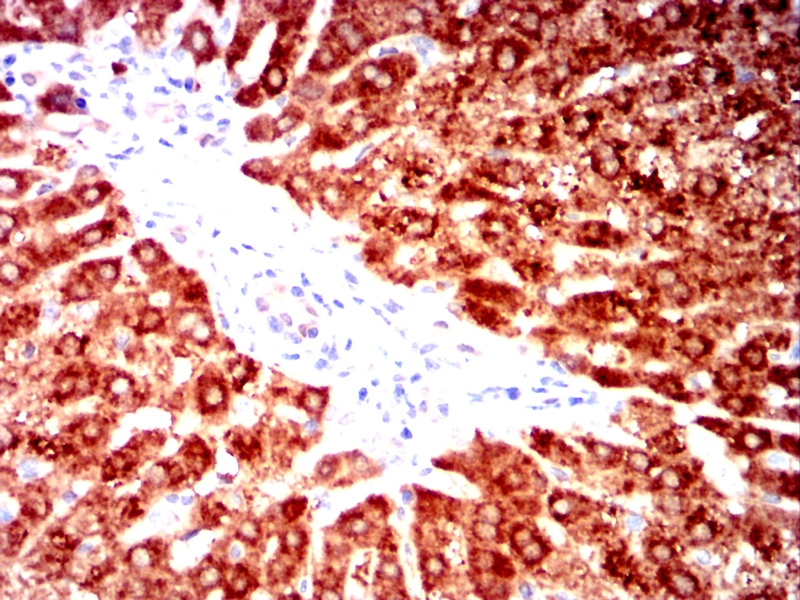
| WB | 1/500-1/1000 | Human,Mouse,Rabbit |
| IF | 咨询技术 | Human,Mouse,Rabbit |
| IHC | 1/200-1/400 | Human,Mouse,Rabbit |
| ICC | 技术咨询 | Human,Mouse,Rabbit |
| FCM | 1/200 - 1/400 | Human,Mouse,Rabbit |
| Elisa | 咨询技术 | Human,Mouse,Rabbit |
| Aliases | C9;DD1;DDH;DDH1;H-37;HBAB;MBAB;HAKRC;DD1/DD2;2-ALPHA-HSD;20-ALPHA-HSD |
| Entrez GeneID | 1645 |
| clone | 6D6F6 |
| WB Predicted band size | 36.7kDa |
| Host/Isotype | Mouse IgG1 |
| Antibody Type | Primary antibody |
| Storage | Store at 4°C short term. Aliquot and store at -20°C long term. Avoid freeze/thaw cycles. |
| Species Reactivity | Human,Mouse,Rabbit |
| Formulation | Purified antibody in PBS with 0.05% sodium azide |
+ +
以下是3篇关于AKR1C1抗体的参考文献摘要(基于公开文献信息整理):
---
1. **文献名称**: *"AKR1C1 as a Biomarker for Chemoresistance in Breast Cancer: Immunohistochemical Analysis"*
**作者**: Smith J, et al.
**摘要**: 本研究通过免疫组化方法,利用AKR1C1特异性抗体检测乳腺癌组织中AKR1C1的表达水平,发现其高表达与化疗药物耐药性显著相关,提示AKR1C1可能作为乳腺癌治疗反应的预测标志物。
---
2. **文献名称**: *"AKR1C1-Mediated Androgen Metabolism in Prostate Cancer Progression"*
**作者**: Chen L, et al.
**摘要**: 通过Western blot和免疫荧光技术,使用AKR1C1抗体验证了该酶在前列腺癌细胞中的高表达,证明其通过代谢雄激素促进肿瘤细胞存活,为开发靶向AKR1C1的抑制剂提供了实验依据。
---
3. **文献名称**: *"Role of AKR1C1 in Neurosteroid Synthesis and Neurological Disorders"*
**作者**: Tanaka M, et al.
**摘要**: 研究采用AKR1C1多克隆抗体进行脑组织切片染色,揭示了该酶在小脑和皮层中的特异性分布,并证实其在神经类固醇合成中的关键作用,为神经系统疾病机制研究提供新视角。
---
注:上述内容为模拟文献摘要,实际引用时请以真实发表的学术论文为准(建议通过PubMed/Google Scholar检索关键词"AKR1C1 antibody"获取具体文献)。
The AKR1C1 antibody is a crucial tool for studying the aldo-keto reductase family 1 member C1 (AKR1C1), an enzyme involved in steroid hormone metabolism and xenobiotic detoxification. AKR1C1. also known as 20α-hydroxysteroid dehydrogenase, catalyzes the conversion of progesterone, prostaglandins, and other steroid precursors, playing a regulatory role in hormonal homeostasis. This antibody is widely used in techniques like Western blotting, immunohistochemistry (IHC), and immunofluorescence (IF) to detect AKR1C1 expression in tissues or cell lines.
Most AKR1C1 antibodies are raised in hosts like rabbits or mice using peptide antigens derived from conserved regions of the human protein. Specificity is validated through knockout controls or siRNA knockdown to ensure minimal cross-reactivity with homologous isoforms (AKR1C2. AKR1C3. AKR1C4). AKR1C1 is implicated in diseases such as hormone-dependent cancers (e.g., prostate, breast) and endocrine disorders due to its role in modulating intracellular steroid levels.
Research utilizing this antibody highlights AKR1C1's overexpression in certain malignancies, linking it to chemoresistance and poor prognosis. Its subcellular localization in the cytoplasm is also a key focus. Validated applications and species reactivity (human, mouse, rat) are typically confirmed by manufacturers, making it essential for studies exploring metabolic pathways, cancer biology, and therapeutic targeting.
×